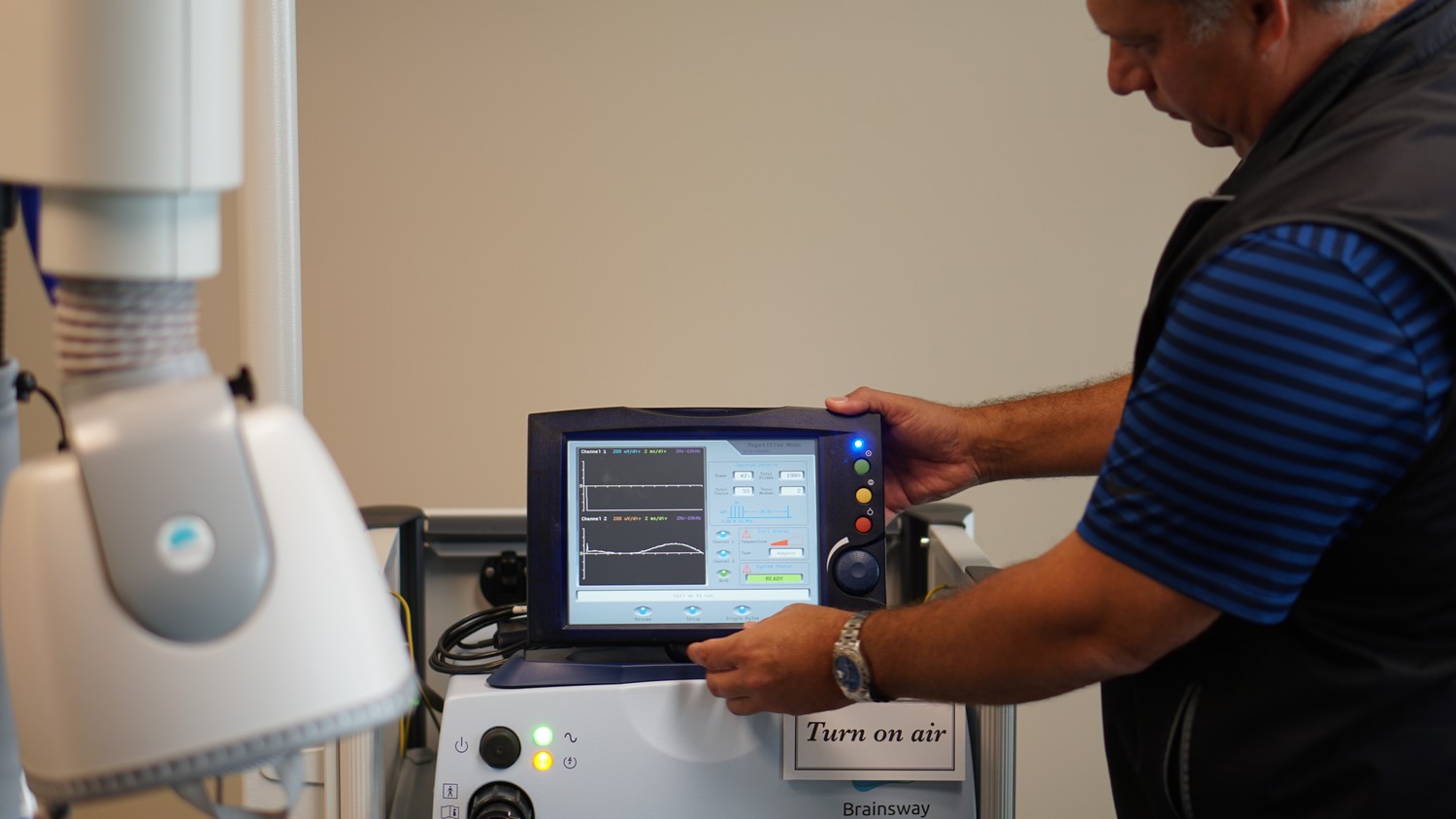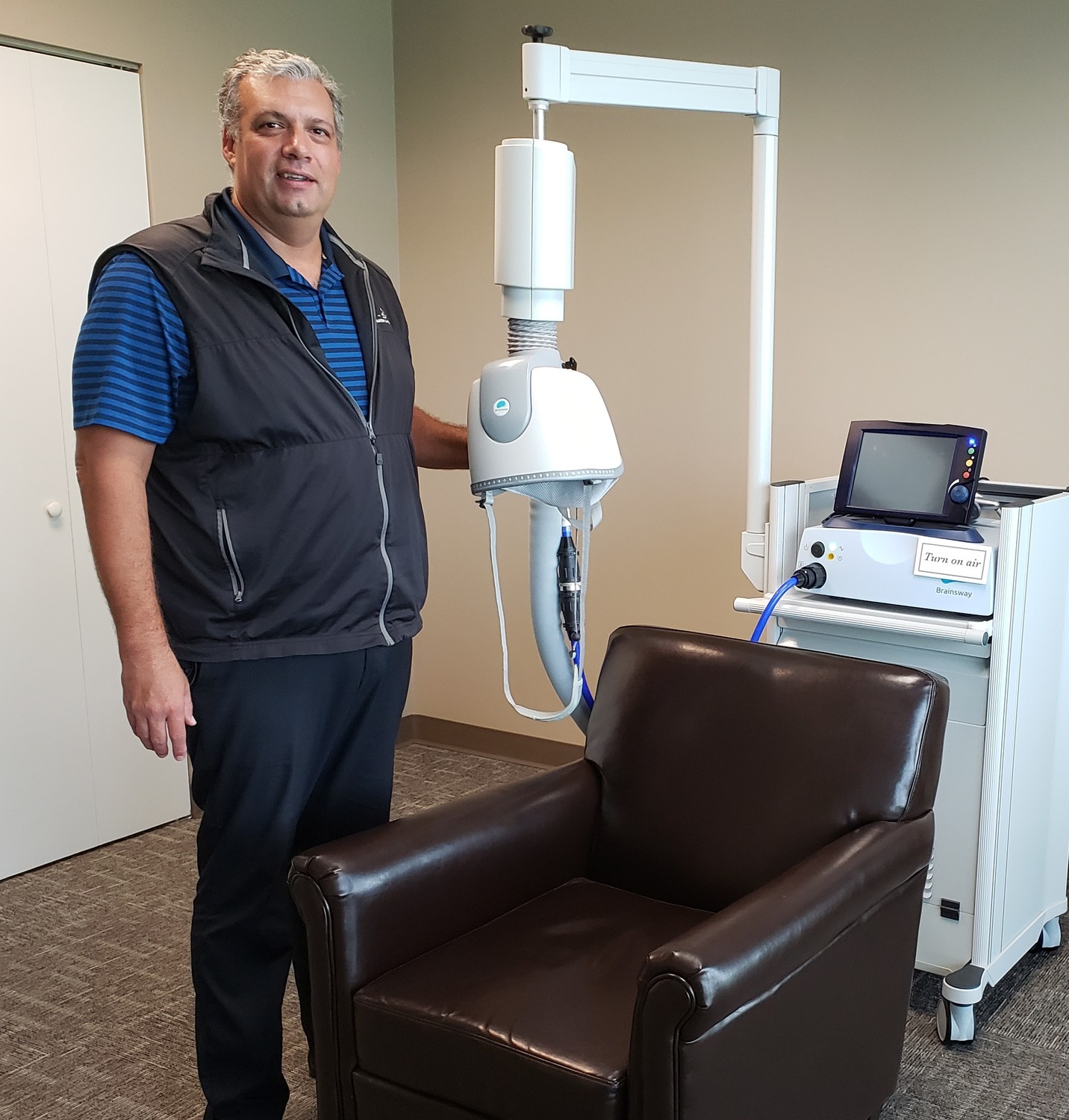Drug-free depression treatment comes to area
ORANGE PARK – A new clinic in Orange Park is offering patients a drug-free treatment for depression that claims to be more than twice as effective as medication.
While therapy and …
This item is available in full to subscribers.
Attention subscribers
To continue reading, you will need to either log in to your subscriber account, or purchase a new subscription.
If you are a current print subscriber, you can set up a free website account and connect your subscription to it by clicking here.
If you are a digital subscriber with an active, online-only subscription then you already have an account here. Just reset your password if you've not yet logged in to your account on this new site.
Otherwise, click here to view your options for subscribing.
Please log in to continueDon't have an ID?Print subscribersIf you're a print subscriber, but do not yet have an online account, click here to create one. Non-subscribersClick here to see your options for subscribing. Single day passYou also have the option of purchasing 24 hours of access, for $1.00. Click here to purchase a single day pass. |
Drug-free depression treatment comes to area
ORANGE PARK – A new clinic in Orange Park is offering patients a drug-free treatment for depression that claims to be more than twice as effective as medication.
While therapy and prescriptions have been the standard go-to in treating depression, in 2008, transcranial magnetic stimulation came onto the scene after being approved by the Food and Drug Administration. TMS targets the area of the brain that releases the chemicals that keep people free from depression.
“It’s different, but after some time, patients find that everything is drowned out during the treatment, so it turns into something peaceful or relaxing,” said Psychiatrist General Marcus DeCarvalho, who also serves as the medical director of Hope Peace Recovery Treatment Center in Orange Park.
TMS requires patients to wear a sci-fi-like helmet that uses a small electromagnetic coil that delivers bursts of magnetic energy to the dorsolateral prefrontal cortex, which is the area of the brain where depression lies. These bursts of energy tell the brain to produce the chemicals that a depressed person’s brain does not produce. It’s the lack of these chemicals that lie at the heart of depression, which is why TMS, like other treatments, aims to make the brain produce them.
While the helmet delivers those bursts, unless distracted by the television or music the clinic has available to patients, a patient will hear what sounds like a woodpecker knocking on wood. Despite TMS’ differences to traditional treatments for depression, DeCarvalho has based much of his practice today on it.
Years ago, DeCarvalho saw a hole in Orange Park. It had plenty of doctors, nurses and pharmacists, but it was missing one thing: psychiatry.
“Orange Park is the most underserved area in psychiatry in the country,” DeCarvalho said, who opened his original psychiatry office up on Wells Road. “There are not enough psychiatrists in this area. That was why I took my business here.”
In February, he opened a TMS treatment center on Jacksonville’s Southside and opened the Orange Park clinic in August at 350 Corporate Way, Suite 100.
Nearly three months later, his clinic, HPR Treatment Center, has treated over a dozen patients, with nine having fully completed the treatment. A cycle of TMS treatments involves 36 treatments, five of which are administered in one week. He has seen patients who saw poor results from medication now being treated successfully for the first time in their life.
That’s because where medication has only a 30 percent efficacy rate, which decreases with each new medication treatment attempted, while TMS has anywhere between a 70 and 80 percent efficacy rate.
“When you take a pill, it has to go through your gut,” DeCarvalho said. “It has to bind all of the receptors in your gut and it will make you nauseous. You might possibly vomit. You might develop diarrhea for the first four weeks.”
DeCarvalho said those are the acute side effects of many depression medications. He also said that doctors like himself coach patients to push through it because these symptoms eventually do dissipate.
“Once it goes away, then it goes into the liver – it’s not even working yet – and in the liver resides enzymes that will activate medications and make them work,” DeCarvalho said. “Your liver may not even have the enzymes, and that’s why so many patients go through so many medications when they come to us. Then, it gets into the heart, the heart beats and boom, it’s shot into the entire body.”
DeCarvalho said the heart can shoot it to centers of the body that can cause weight gain, decreased libido and more. When this medication finally makes it to the brain, it kick starts the brain into making serotonin, dopamine and norepinephrine – chemicals usually missing in depressed patients.
TMS bypasses the acute side effects that occur in the first few weeks of medication and goes directly to the dorsolateral prefrontal cortex, which houses the center of depression.
Patients must first go through a 45-minute brain scan that will reveal where the dorsolateral prefrontal cortex is in their head. Then, the first of 36 treatments can begin.
“For some patients, it takes a few times before the effects are really noticeable, but often, our patients are feeling the effects after the first treatment,” DeCarvalho said. “It varies from person to person.”
DeCarvalho said he’s had a patient that struggled with lifelong depression. This patient had been to therapy time and time again, taken multiple medications and even attempted to take their life multiple times, but after a complete cycle of TMS, finally found themselves free from depression.
DeCarvalho admits the unconventional nature of TMS might produce skepticism, the treatment is growing in popularity.
While any person can undergo the treatment, they must first have tried at least one medication aimed at treating depression. Upon at least one of those medication’s failure, they can be approved for TMS, which DeCarvalho said is covered by most insurance companies, including Tricare.
According to DeCarvalho, over 40 million Americans deal with depression daily and, in 2017, over 1,200 Clay County residents were hospitalized for depression, so the need is evident.
“The more we can educate the community about what’s out there to help them, the less likely people are going to find relief using other things, like drugs or alcohol,” DeCarvalho said. “[Depression] is such a huge issue in our country and people are always like, ‘well how are we ever going to get better?’ and it’s just by doing stuff like this. This is how we can provide a care to people who are struggling and suffering.
“These machines, I believe, can really make a difference in Orange Park,” DeCarvalho said.











